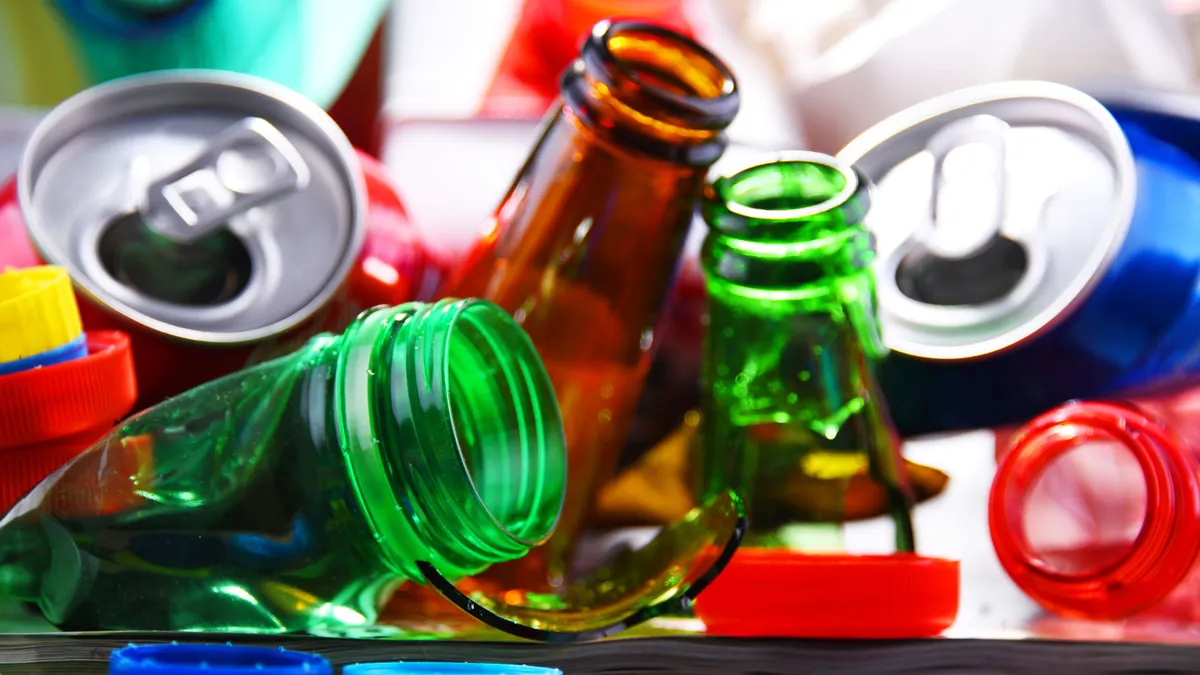When it comes to plastics policy, recent momentum appears to be on the side of environmentalists. Bans and taxes on plastic bags are increasingly common across the United States and in other countries, while items like plastic straws are growing more controversial.
Those worried about potential pollution and toxicity associated with plastics see the trend as critical to rectifying environmental issues. But during a recent afternoon panel in Washington, D.C., members of the industry pushed back on that narrative.
“Getting rid of plastics does not actually solve the issue,” argued Jean-Cyril Walker, a partner with Keller and Heckman, who advises food packaging makers on compliance with environmental laws.
Walker's firm has closely monitored the European Union's plastics regulation overseas, as well as 2019 laws targeting plastic bags in states such as Vermont, Maine, Oregon, Delaware, New York and Connecticut. Those states are following in the footsteps of California, which banned single-use carry-out bags in 2016, and Hawaii, where all counties have banned single-use bags. Momentum is also growing in cities, with Balitmore and Philadelphia among the latest major urban areas to enter the fray.
Worried about the onslaught, plastics manufacturers are elevating their concerns at events like the panel where Walker spoke. Hosted by the Environmental Law Institute (ELI), the conversation gave plastics advocates the opportunity to make their case alongside proponents of bans, who argue governments need to intervene to help the environment. Those bans often target single-use plastics, a term that drew Walker’s ire.
“I think the term [single-use]...is a misnomer for what is actually occurring,” he said, maintaining that consumers don’t fully understand the extent to which they can recycle and reuse items like plastic bags.
But he faced stiff opposition from Catherine Plume, an environmental consultant. Plume, who has previously worked with World Wildlife Fund and the World Resources Institute, highlighted the toll of plastics pollution globally. (Plume previously freelanced for Waste Dive on other topics in 2018 and is no longer a contributor to the site.) The extent to which plastics have entered water and food sources, she said, has left “each of us ingesting about a credit card's worth of plastic a week … I can't understand how that can be a good thing for any of us.”
Plume found an ally in the panel’s moderator, Lillian Power, an environmental protection specialist with the D.C. Department of Energy & Environment (DOEE). The city has three plastics rules currently in effect, including a five-cent tax on plastic bags, a ban on polystyrene foam foodservice products, and a newer ban on plastic straws and stirrers.
Power explained the “motivating factor” for those laws was an uptick in extreme litter around the city, particularly in the fragile Anacostia River. The law targeting plastic bags came into effect in 2010, after which point Power said bag waste decreased significantly according to data collected by the non-profit Alice Ferguson Foundation and shared with DOEE. The money generated from the five-cent tax goes into a designated fund with an emphasis on the Anacostia watershed. With that revenue, the city has been able to remove 70,000 pounds of trash, restore around 29,000 linear feet of streams, and plant more than 3,000 trees.
D.C. has achieved similar success with its polystyrene foam ban, which has a 97% compliance rate as of 2019. The city’s newer ban on plastic straws and stirrers, which has only been enforced since January, is slowly seeing more compliance after fines for violations kicked in last July. Initial compliance was at 59% between January and June, and 83% as of September, which Power deemed a "steady, consistent rate."
D.C. reflects wider national and global trends. More than 125 countries and 240 U.S. cities have specifically targeted plastic bags, either with restrictions and taxes or with outright bans. A similar movement is now taking shape around plastic straws, as consumer pressure mounts.
But not all states are on board. Plastics lobbyists have worked across the country to target bans and poured money into the effort. The powerful American Chemistry Council (ACC), whose clients include ExxonMobil and Dow, and the Plastics Industry Association-affiliated American Progressive Bag Alliance (APBA) are among the major players pushing back on the plans. And they've had success: according to the advocate-run tracker PlasticBagLaws.org, around a dozen states have some form of preemption law in place.
That includes Texas, where cities like Austin sought to ban plastic bags in recent years, only to back down after the state Supreme Court ruled in 2018 that a ban in Laredo violated state law. The decision has had statewide implications.
Meanwhile, the city of Chicago banned thin plastic bags in 2015, only to swap the policy for a seven-cent tax in 2017 on all paper and plastic bags. Chicago made that change after finding bag-related pollution was actually increasing following the city's initial ban. Industry members say that reversal underscores their arguments about unintended consequences of switching to other materials for various products.
When it comes to packaging, plastics representatives maintain their products are used globally and are easier to recycle in the United States than alternatives like glass. Plastic film drop-off recycling options are an ongoing priority for the industry, with support from the U.S. Environmental Protection Agency and other government entities.
During the panel discussion, Matt Seaholm, executive director for APBA, disputed the spirit of the bans, which he said fail to capture the real potential of the product.
“Plastic bags are 100% recyclable,” he said, arguing that the product is “highly reusable” and that low plastic bag recycling numbers need to account for the number of people reusing plastic bags at home rather than recycling them.
Even Plume agreed that plastics are deeply interwoven with daily life. “We don’t have viable alternatives for [plastics] right now,” she said, admitting that they are “everywhere."
Still, the bans are likely to continue as consumers respond to imagery of marine debris and other environmental impacts. Walker argued for an alternative, pushing for better education about plastics on all levels.
“What we do need to get at is behavior ... consumer and product user behavior,” he said.
Walker also emphasized that limiting plastics globally could have significant implications consumers have not acknowledged. “Getting rid of plastics does not actually solve the issue,” he said said, calling them “a technological response” to flawed products like paper bags, which do not hold up as well against the elements.
Even after allowing for increased education, however, Walker indicated that the industry will likely have to rethink its approach with a circular economy in mind, taking products “down to the molecule” and beginning with the future in mind.
Accounting for this “end of life design at the development stage of a product,” he said, will help the industry regain its footing as it weathers regulations and consumer opinion. “Clients want to be part of the solution rather than the problem."
















